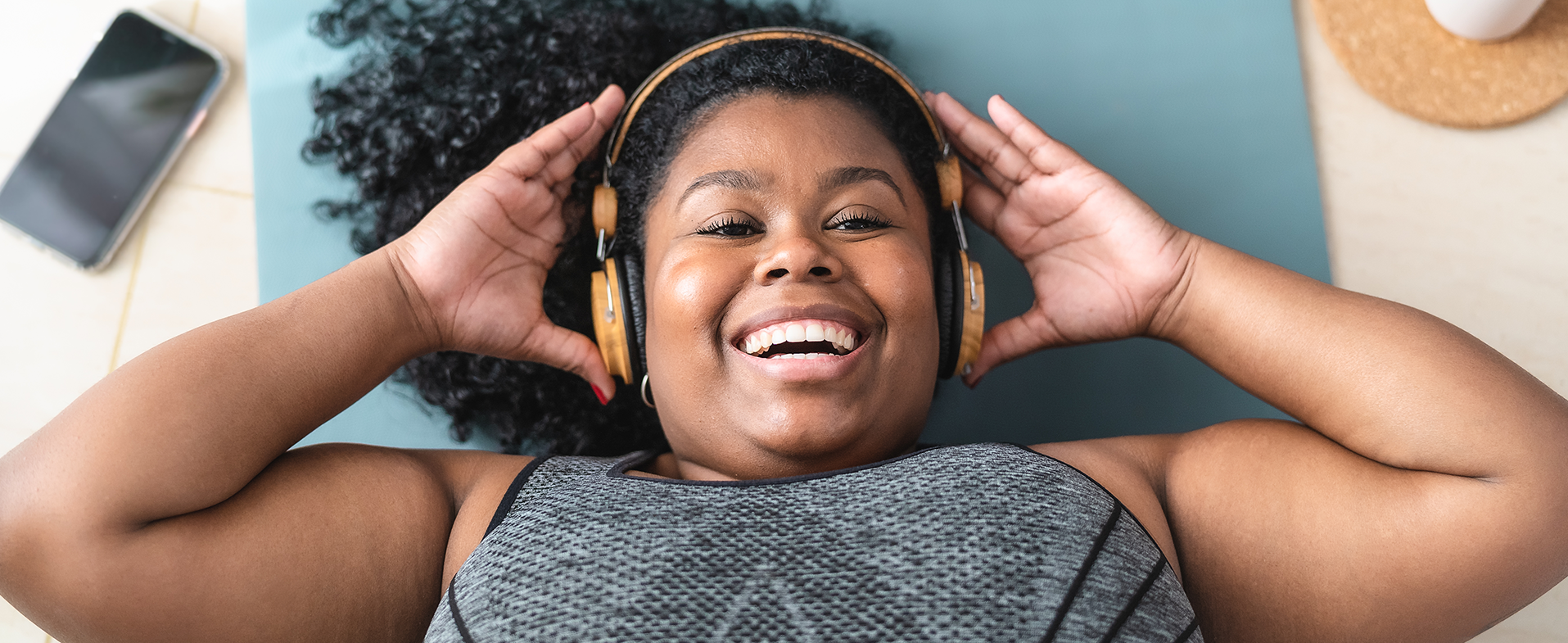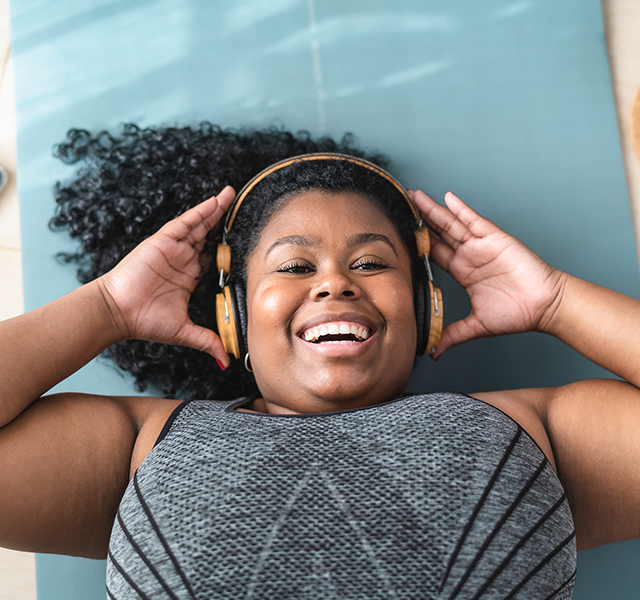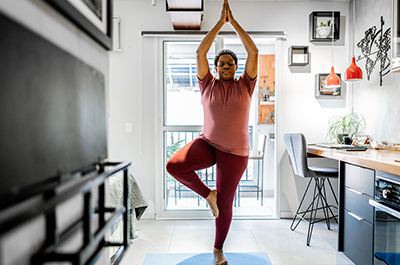Do you ever have those days where you don’t feel like working out? If you’ve still dragged yourself out of bed (or off the couch) and did it anyway, you might’ve noticed that listening to music helped pump you up and keep you going. And actually, it’s scientifically proven that listening to music while exercising increases your motivation and performance – as music impacts several areas of the brain all at once.
Music has been shown to reduce feelings of fatigue and exertion – and it can even alter how hard your muscles contract. Just as upbeat music can make you feel happier when you’re down, it can also reduce feelings of pain and increase endurance to keep you going when you want to stop.
I know I notice a difference when I’m working out – I’m more motivated when I listen to upbeat music versus when I’m zoning out watching reruns of a show on TV. At the Henry Ford Center for Athletic Medicine, there’s always music playing in the gym. Music is actually so impactful that if you’re listening to something you don’t like, it can decrease your performance. Oftentimes, when a song is playing that one of our athletes like, you can tell they’re more upbeat and ready to work out versus when it’s one they don’t.

Go Where The Pros Go
But to really maximize the potential of music, it’s more than just listening to music you like – you should also consider switching up your playlist based upon the type of workout you’re engaging in.
Different Music For Different Types Of Exercises
Our bodies are so intertwined with rhythm – we are wired to follow a rhythm – so using music to set the pace of a workout is key. For example, I don’t listen to the same music when I’m on a long-distance run as I do when I’m lifting weights. Here are some types of music I recommend for different exercises:
- Warm up: Especially if you’re begrudgingly getting yourself to the gym, putting on something unabashedly fun and upbeat while warming up can help get you in the right mindset to workout. Maybe for you that’s pop music – whatever gets you going.
- Long-distance running: Listening to something chill will help you keep your pace slow and steady and prevent you from running too fast. For example, I like a surf rock vibe, like Jack Johnson, Goth Babe and Cayucas.
- Strength training: This is a great opportunity to listen to something fast-paced. I listen to hard rock and rap because those genres motivate me but go with whatever you prefer.
- Yoga/cool down: Calm, peaceful music after a workout helps you to wind down (especially if you’ve just completed an evening exercise and need to ease into a sleepy state of mind). You can even just search for a meditative playlist on whatever music app you use.
- Getting back into running after an injury: Did you know that listening to music can also help you when you’re returning to running after an injury? When we see people at our Gait Lab (where we analyze your gait using a data-equipped treadmill) we aim to get you back to 170 to 180 steps per minute. To do this, we talk about music to speed up your steps. You can use a metronome to help you run at this steady pace, but you can also use an app like Spotify to search for music that has 170 or 180 beats of music per minute. Doing so can help you easily fall into that gait – and it’s a bit more fun than listening to a metronome, too!
Nick Parkinson, M.Ed., AT, ATC, TSAC-F, is the supervisor of athletic training and sports performance at Henry Ford Health. Learn more about Nick.



